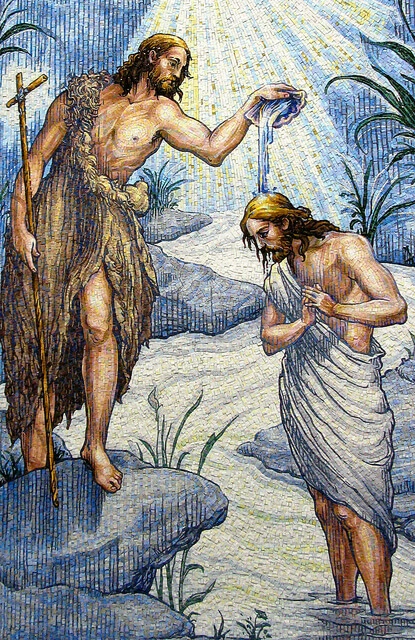9373. Come up unto Jehovah. That this signifies conjunction with the Lord, is evident from the signification of “coming up,” as being to be raised toward interior things (see n. 3084, 4539, 4969, 5406, 5817, 6007), consequently also to be conjoined (n. 8760). That it denotes conjunction with the Lord, is because by “Jehovah” in the Word is meant the the Lord, (n. 1343, 1736, 1793, 2004, 2005, 2018, 2025, 2921, 3023, 3035, 5663, 6280, 6303, 6905, 8274, 8864, 9315). A secret which also lies hidden in the internal sense of these words, is that the sons of Jacob, over whom Moses was the head, were not called and chosen; but they themselves insisted that Divine worship should be instituted among them (according to wh at has been said in n. 4290, 4293); and therefore it is here said, “and He said unto Moses, Come up unto Jehovah,” as if not Jehovah, but another, had said that he should come up. For the same reason in what follows it is said that “the people should not go up” (verse 2); and that “Jehovah sent not His hand unto the sons of Israel who were set apart” (verse 11); and that “the appearance of the glory of Jehovah was like devouring fire on the top of the mountain in the eyes of the sons of Israel” (verse 17); and lastly that Moses, being called the seventh day, “entered into the midst of the cloud.” For by “the cloud” is meant the Word in the letter (n. 5922, 6343, 6752, 6832, 8106, 8443, 8781); and with the sons of Jacob the Word was separated from its internal sense, because they were in external worship without internal, as can be clearly seen from the fact that now, as before, they said, “all the words which Jehovah hath spoken we will do” (verse 3); and yet scarcely forty days afterward they worshiped a golden calf instead of Jehovah; which shows that this was hidden in their hearts while they were saying with their lips that they would serve Jehovah alone. But nevertheless those who are meant by “the called and the chosen” are those who are in internal worship, and who from internal worship are in external; that is, those who are in love to and faith in the Lord, and from this in love toward the neighbor.
John the Baptist

John the Baptist represents the natural, literal sense of the Bible. He and Jesus were cousins. He paved the way for Jesus, just as the literal sense of the Bible paves the way for the spiritual sense. John is described as a rough man clothed with camel's hair. The literal sense of the Bible can be rough and unpleasant as well. The fact that John lived in the wilderness speaks to the state of the Old Testament at the time. His message of repentance is the first step towards spiritual rebirth. (Arcana Coelestia 9372, 10528)
Yet even in its externals, the Bible stands above human-generated ideas: Jesus said John was "greater than a prophet," and prophets represent doctrine. "Those born of women" represent true ideas; John was the greatest of all. And the simple power of his message – a message of repentance – helped people examine and begin to fight their evils, preparing them for the love and goodness that Jesus would preach.
Arcana Coelestia #6303
6303. And God shall be with you. That this signifies the Divine providence of the Lord, is evident from the signification of “God shall be with you,” as being the Divine providence of the Lord; for when the Lord is with anyone, He leads him, and provides that all things which happen, whether sad or joyful, befall him for good: this is the Divine providence. The reason why it is called the providence “of the Lord” is that it is said, “God shall be with you,” and by “God” and by “Jehovah” in the Word is meant the Lord, for there is no other God besides Him; for He is the very Father and He is the very Son, for they are one; the Father is in Him, and He in the Father, as He Himself teaches in John 14:9-11 (see n. 1343, 1736, 2921, 3035, 5663).






